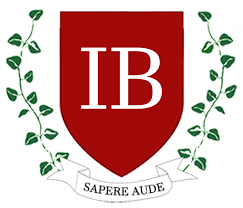Fuel Your Passion for Free: 4 Ways to Dive into Academic Interests

by Jennifer L.
Exploring what you love doesn’t have to come with a price tag. Whether you’re drawn to science, history, or an interdisciplinary field that blends both, there are fun, free, and meaningful ways to start learning today.
Here are 4 no-cost ways students can dive into academic interests:
Activity 1: Join a Citizen Science Project
Love science and nature? Downloading a citizen science app like iNaturalist, Zooniverse, or Globe Observer is an easy, free way to help support real scientific research.
With these apps, you can take pictures of local wildlife, identify plants, observe clouds, or even help classify galaxies. Your contributions assist researchers with biodiversity studies, climate tracking, and more. It’s hands-on science that starts in your own backyard.
Activity 2: Digitize History
If you’re interested in history or archival work, many local libraries and city archives are looking for volunteers to help digitize documents, photos, and records.
This not only gives you a chance to explore local history—it helps preserve it. Look for digital humanities or “history harvest” projects in your area, or check with your town’s historical society to see if they need help scanning or transcribing historical materials.
The Smithsonian also regularly recruits digital volunteers through its Transcription Center where you can even customize the projects you want to support.
Activity 3: Start a Passion Project
Use your interest to create something unique – a blog, short film, research paper or a community workshop.
If you love science, write about your citizen science findings.
If you’re a history fan, create a website featuring interviews with local elders or lost stories from your town. Consider creating a historical photojournalism project that explores how an issue has evolved over time in your community or affects a population you care about.
Activity 4: Attend Free Virtual Talks, Lectures or Conferences
Many universities, museums, and professional organizations host free virtual events that are open to the public. These can include guest lectures by professors, panel discussions with experts, and Q&A sessions on topics like climate science, constitutional law, or AI ethics. Websites like Eventbrite or university event calendars often list upcoming talks.
For example, a student interested in law could attend a livestreamed Supreme Court case discussion, while a STEM student might join a NASA webinar or MIT Open Lecture.
Exploring your academic interests doesn’t require a budget—just curiosity, commitment, and a little creativity. Start now with free activities for your academic interests, and you’ll build skills, knowledge, and confidence that will help you learn more about different career paths and your college application journey.

